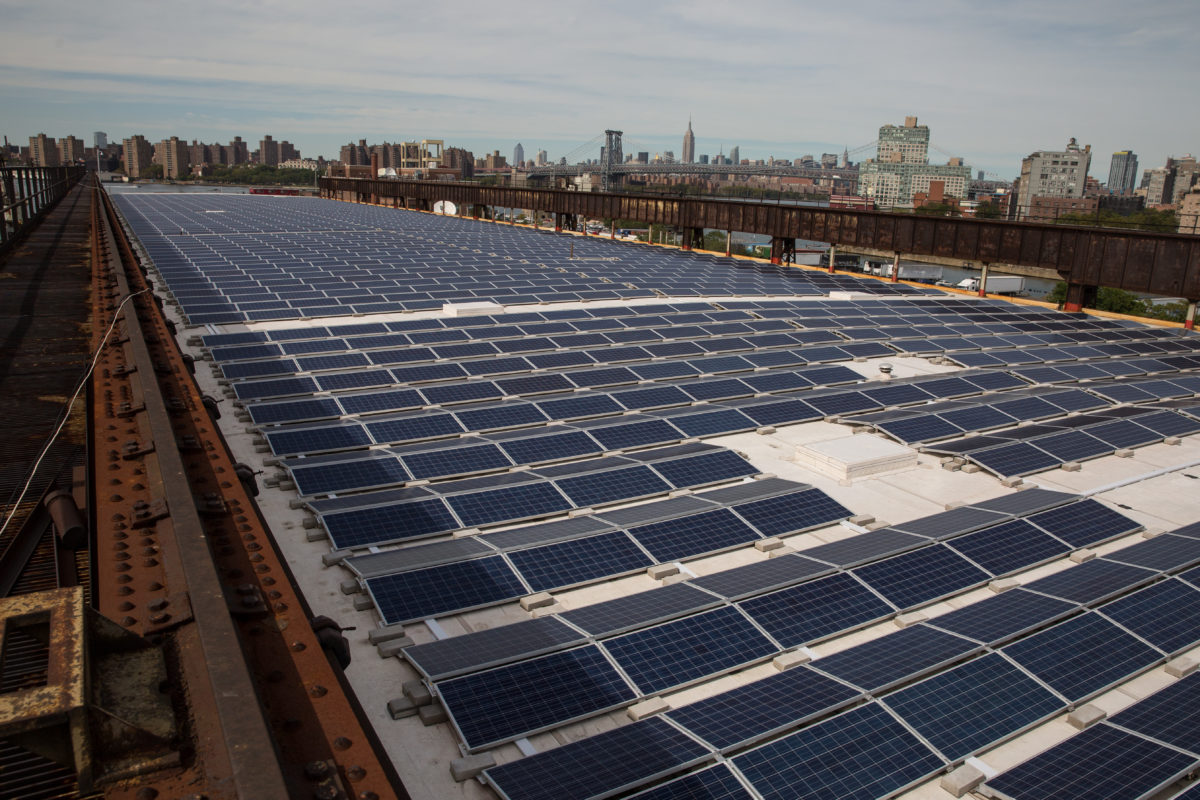News came Monday that a new tariff on the import of solar panel equipment of 30 percent was approved by the Trump administration.
What impact will the tariff have on Brooklyn solar startups? To hear it from them: negative but not catastrophic.
“In all, I think we’ll power through it,” SolarWorks CEO T.R. Ludwig said by phone Tuesday. “It is going to kill projects. People are not going to invest in solar at some percentage because they’re now more expensive and that just doesn’t pencil in as well.”
Taxing solar panels up to 30% will destroy U.S. jobs, raise Americans' electric bills and hurt our environment. Congress should stand up for American workers and consumers and overturn the administration's harmful decision. https://t.co/TBdgQ1LluV
— Mike Bloomberg (@MikeBloomberg) January 23, 2018
SolarWorks is a Gowanus-based company that installs standard-issue solar roof panels as well as its own invention, the flat-roof solar canopy, which is basically solar panels on stilts so you can still use your roof and now also have a nice shade for it.
Eighty percent of solar equipment is manufactured abroad, according to Bloomberg, much of it in China. The resultant increase in the price of panels will lead to a projected 23,000 job losses this year, according to the Solar Energy Industries Association.
The news did not come as a shock. Both Ludwig and Chris Barrett, the founder of Downtown Brooklyn solar startup ProjectEconomics, have included the potential for this tariff in their 2018 business projections. Project Economics is a software platform that helps to scale community solar energy through local grids. It won $1 million in funding last year from the U.S. government.
“I think it’s roughly what we expected the outcome would be,” Barrett said by phone Tuesday. “It’s a kick in the gut for the solar industry but probably one that’s been expected and priced in for a little while.”
“The shit that’s going on with Trump is just outrageous,” Ludwig told us last June.
Last quarter, Dumbo renewables startup United Wind raised $2.6 million in venture funding. Its founder, Russell Tencer, said he expected disruptions in the growth of the industry to be only temporary.
“Short term, it has a lot of impact, because policies are changing in an unfavorable way,” Tencer explained earlier this month. “But longer term, meaning post–this administration, we just don’t see how this trend doesn’t continue more aggressively toward distributed generation.”
Before you go...
Please consider supporting Technical.ly to keep our independent journalism strong. Unlike most business-focused media outlets, we don’t have a paywall. Instead, we count on your personal and organizational support.
Join our growing Slack community
Join 5,000 tech professionals and entrepreneurs in our community Slack today!
